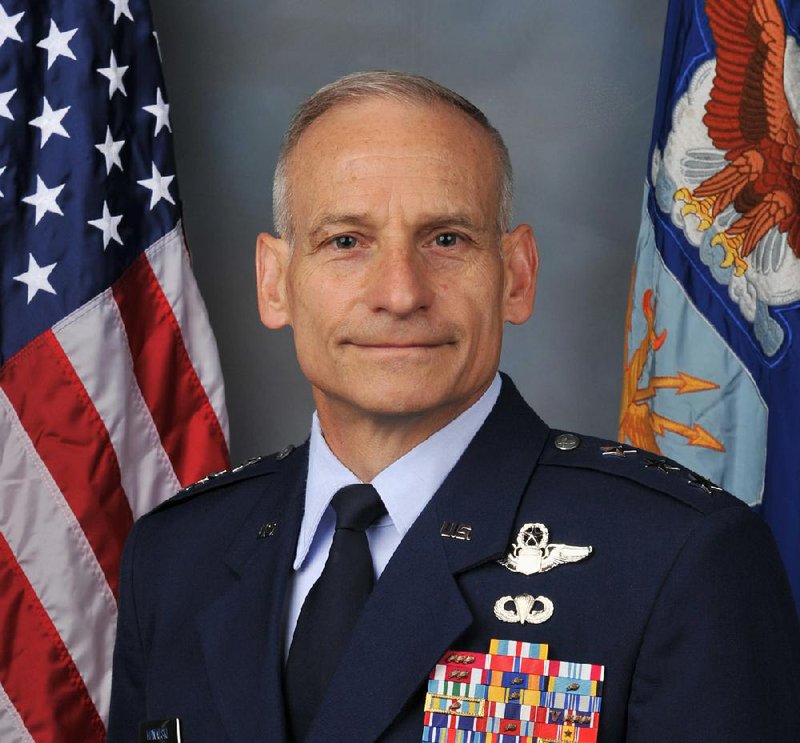WASHINGTON - Twice this year alone, Air Force officers entrusted with the launch keys to nuclear-tipped missiles have been caught leaving open a blast door that is intended to help prevent terrorists or other intruders from entering their underground command post, Air Force officials said.
The blast doors are never to be left open if one of the crew members inside is asleep - as was the case in both these instances - out of concern for the damage an intruder could cause, including compromising secret launch codes.
Transgressions such as this are rarely revealed publicly. But officials with direct knowledge of Air Force intercontinental ballistic missile operations said such violations have happened, undetected, many more times than in the cases of the two launch crew commanders and two deputy commanders who were given administrative punishments this year.
The blast-door violations are another sign of serious trouble in the handling of the nation’s nuclear arsenal. The Associated Press has discovered a series of problems within the intercontinental ballistic missile force, including a failed safety inspection, the temporary sidelining of launch officers deemed unfit for duty and the abrupt firing last week of the two-star general in charge.
The crews that operate the missiles are trained to follow rules without fail because the costs of a mistake are so high. The officers, known as missileers, are custodians of keys that could launch missiles with warheads capable of a nuclear yield many times that of the atomic bombs dropped on Japan in 1945.
“The only way that you can have a crew member bein ‘rest status’ is if that blast door is shut and there is no possibility of anyone accessing the launch control center,” said Lt. Gen. James Kowalski, the commander of Air Force Global Strike Command. He is responsible for the entire force of 450 Minuteman 3 missiles, plus the Air Force’s nuclear-capable bombers.
The blast door is not the first line of defense. An intruder intent on taking control of a missile command post would first face many layers of security before encountering the blast door, which - when closed - is secured by 12 hydraulically operated steel pins.
In neither of the two reported violations was security of the crews’ missiles compromised, the Air Force said, “due to the multiple safeguards and other protections in place.”But these were clear-cut violations of what the Air Force calls “weapon system safety rules” meant to be strictly enforced in keeping with the potentially catastrophic consequences of a breach of nuclear security.
In an extensive interview last week at his headquarters at Barksdale Air Force Base, La., Kowalski declined to say whether he was aware that missile launch crew members had violated the blast-door rule with some frequency.
“I’m not aware of it being any different than it’s ever been before,” he said. “And if it had happened out there in the past and was tolerated, it is not tolerated now. So my sense of this is, if we know they’re doing it they’ll be disciplined for it.”
It is clear that Air Force commanders do know these violations are happening. One of the officers punished for a blast-door violation in April at the 91st Missile Wing at Minot Air Force Base, N.D., admitted during questioning by superiors to having done it other times without getting caught.
Both officers involved in that case were given what the military calls nonjudicial punishment under the Uniform Code of Military Justice. One was ordered to forfeit $2,246 in pay for two months and received a letter of reprimand, according to Lt. Col. John Sheets, spokesman for Air Force Global Strike Command. The other launch officer, who admitted to having committed the same violation “a few” times previously, was given a letter of admonishment, Sheets said.
Kowalski said the crews know better.
“This is not a training problem. This is some people out there having a problem with discipline,” he said.
The other confirmed blast door violation happened in May at Malmstrom Air Force Base, Mont. In that case, a person who entered the capsule to do maintenance work realized that the deputy crew commander was asleep with the door open and reported the violation to superiors. Upon questioning, the deputy crew commander initially denied the accusation but later confessed and said her crew commander had encouraged her to lie, Sheets said.
The crew commander was ordered to forfeit $3,045 in pay for two months, Sheets said, and also faces an Air Force discharge board that could force him out of the service.
The deputy crew commander was given a letter of reprimand. Punishment of that sort does not require the officer to leave the service but usually is a significant obstacle to promotion and could mean an early end to his or her career.
Sheets said the Minot and Malmstrom violations were the only blast-door disciplinary cases in at least two years.
Front Section, Pages 4 on 10/23/2013
